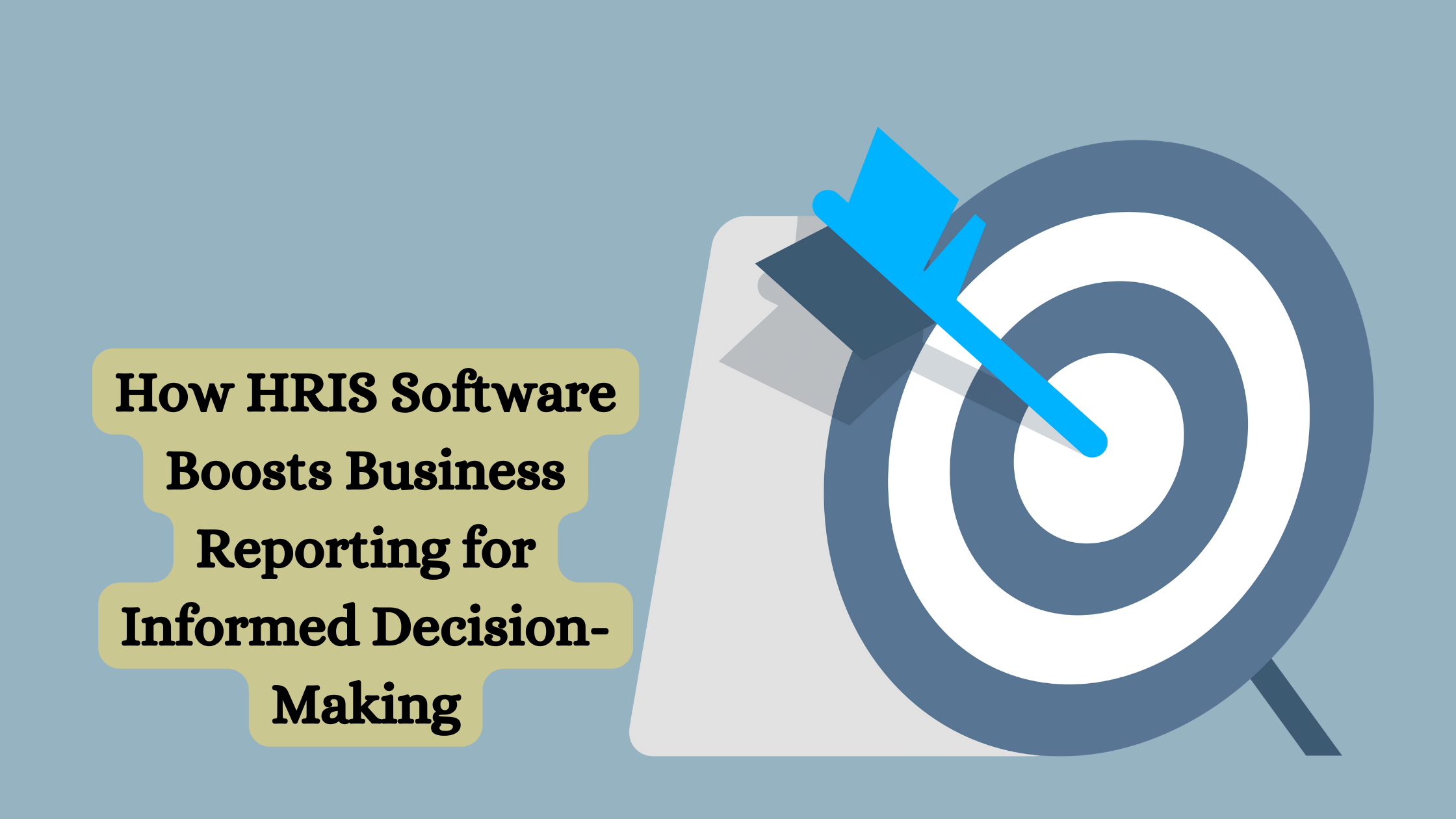
Business software serves as a powerful tool for streamlining HR processes, improving efficiency, and enhancing employee experiences. Yet, its benefits extend far beyond the HR department’s functions alone. One area where HRIS software truly shines is in boosting business reporting capabilities for informed decision-making. By harnessing the wealth of data stored within HRIS systems, organisations can generate comprehensive reports that provide valuable insights into various aspects of their operations.
Functionalities of HRIS Software
- Efficiency: HRIS software automates many HR tasks, such as payroll management, scheduling, and employee data management. This automation saves time and reduces errors in HR operations.
- Data Management: The software centralises employee data, making it easily accessible and updatable, ensuring accurate and consistent information across the organisation.
- Reporting: It offers advanced reporting capabilities, allowing organisations to generate custom reports quickly. These reports can provide valuable insights into employee performance, engagement levels, and HR metrics.
- Employee Self-Service: HRIS systems empower employees with self-service capabilities, allowing them to access and update their personal information, view pay stubs, submit time-off requests, and enrol in benefits. This reduces the administrative burden on HR staff and improves employee satisfaction.
- Compliance Management: It helps organisations maintain compliance with labour laws, regulations, and company policies by tracking compliance requirements, monitoring employee records, and generating compliance reports. It ensures adherence to legal requirements related to employment practices, equal opportunity, and workplace safety.
- Training and Development: HR software manages employee training programs by tracking training requirements, scheduling training sessions, and recording training completion. It provides access to online training resources, tracks employee certifications, and evaluates training effectiveness.
The Value of Business Reporting
Business reporting is an essential tool for organisations, providing useful insights into numerous elements of their operations. Business reporting is fundamentally about analysing and presenting data to guide decision-making and promote organisational success. Business reporting gives stakeholders a clear and complete insight into the organisation’s performance, trends, and opportunities for development by collecting and synthesising data from many sources.
First and foremost, business reporting helps decision-makers make educated decisions by providing them with timely and reliable information. Whether it’s CEOs, managers, or frontline staff, having access to relevant data enables people at all levels of the organisation to make educated decisions that correspond with strategic goals. From resource allocation to risk management, business reporting ensures that choices are made using data-driven insights rather than intuition or guesswork.
Furthermore, corporate reporting makes performance monitoring and assessment easier by tracking key performance indicators (KPIs) and metrics. Organisations can discover areas of strength and weakness by monitoring progress against specified objectives and benchmarks, assessing the success of plans and initiatives, and changing course as needed. Business reporting supports a culture of responsibility and continual development, which drives organisational performance.
In addition to decision-making and performance monitoring, business reporting is critical for improving internal communication and cooperation. Business reporting promotes openness and alignment among departments and teams by providing stakeholders with a consistent set of data and KPIs. Effective sharing of ideas and discoveries obtained from business reporting fosters cooperation and allows cross-functional teams to collaborate towards similar objectives.
Moreover, business reporting helps organisations meet compliance and regulatory obligations by ensuring that they follow applicable laws, rules, and industry standards. Business reporting assists organisations in demonstrating compliance with legal and regulatory duties, mitigating risks, and avoiding penalties or fines. Compliance reporting assures stakeholders that the organisation acts ethically and responsibly.
Types of Reports Generated by HRIS Software
Employee Demographics Report: This report provides an overview of the demographic composition of the workforce, including age, gender, ethnicity, and education level. It helps organizations track workforce diversity and identify areas for improvement.
Turnover and Retention Report: This report analyses employee turnover rates, reasons for attrition, and retention strategies effectiveness. It helps companies identify turnover trends, predict future turnover, and develop strategies to improve employee retention.
Recruitment Metrics Report: It tracks recruitment metrics, such as time-to-fill, cost-per-hire, and source of hire. It helps firms evaluate the effectiveness of their recruitment efforts and optimise their hiring processes.
Performance Management Report: This evaluates employee performance metrics, such as goal attainment, performance ratings, and development needs. It helps companies identify high-performing employees, areas for improvement, and training opportunities.
Training and Development Report: It analyses employee training and development activities, including training completion rates, training effectiveness, and skill gaps. It assists organisations to assess the impact of training programs and allocate resources effectively.
Payroll and Benefits Report: This provides a summary of payroll expenses, employee benefits utilisation, and compliance with labour regulations. It helps businesses manage payroll costs, track benefit expenses, and ensure compliance with legal requirements.
Conclusion
HRIS software plays an important part in improving company reporting capacities. Organisations can make quick, informed choices by delivering real-time data analysis and customisable reports. Automated report generation promotes speed and accuracy in strategic planning. Using human resources information software helps organisations to successfully respond to market shifts while maintaining a competitive advantage.